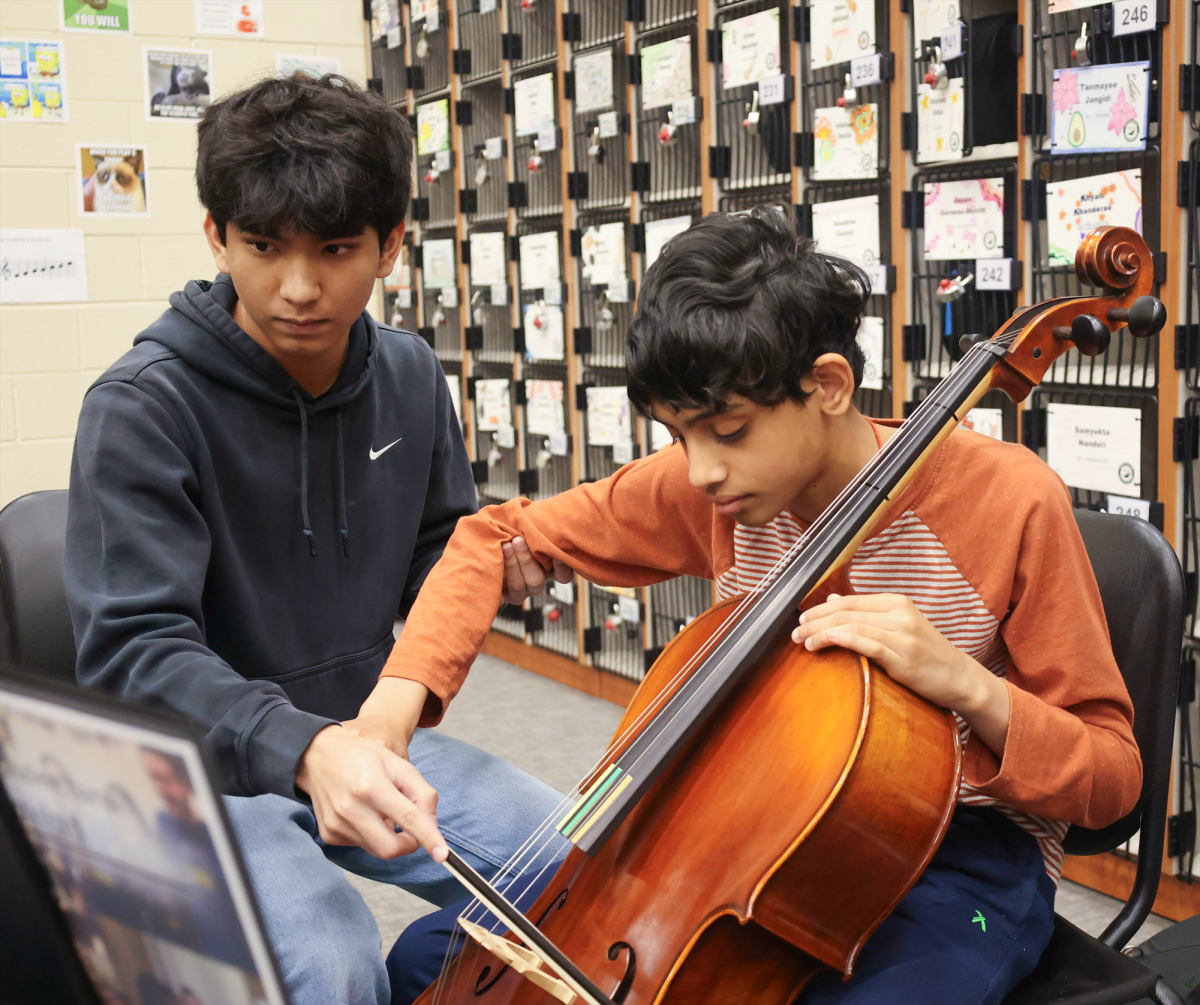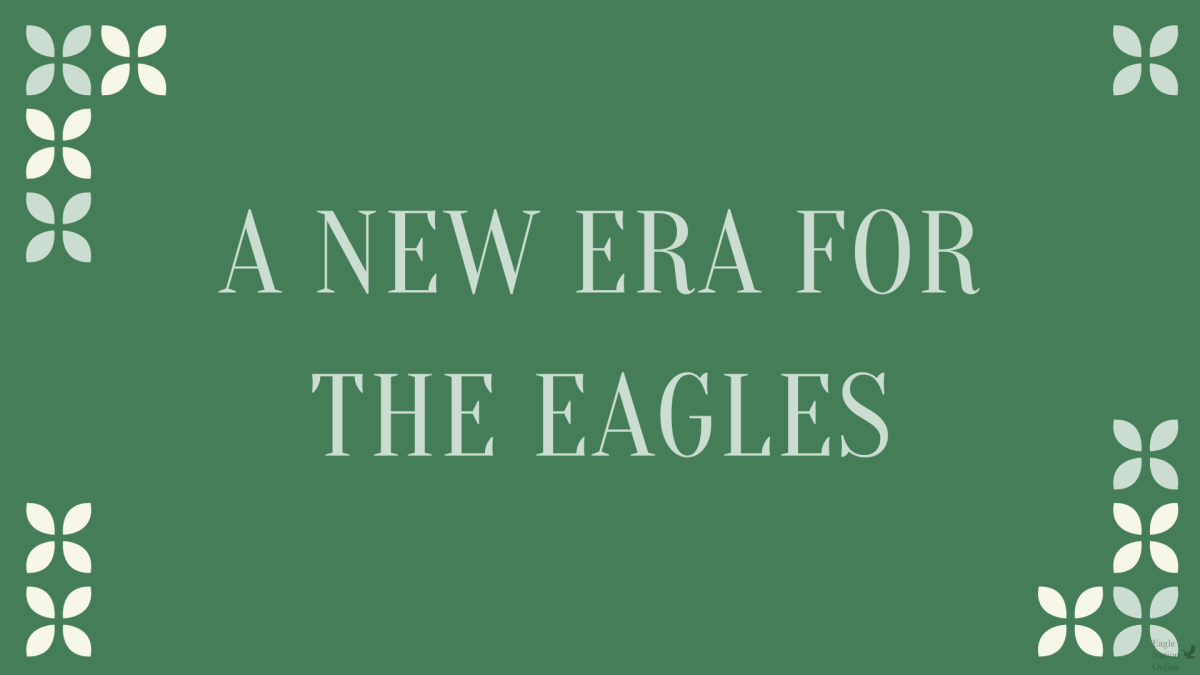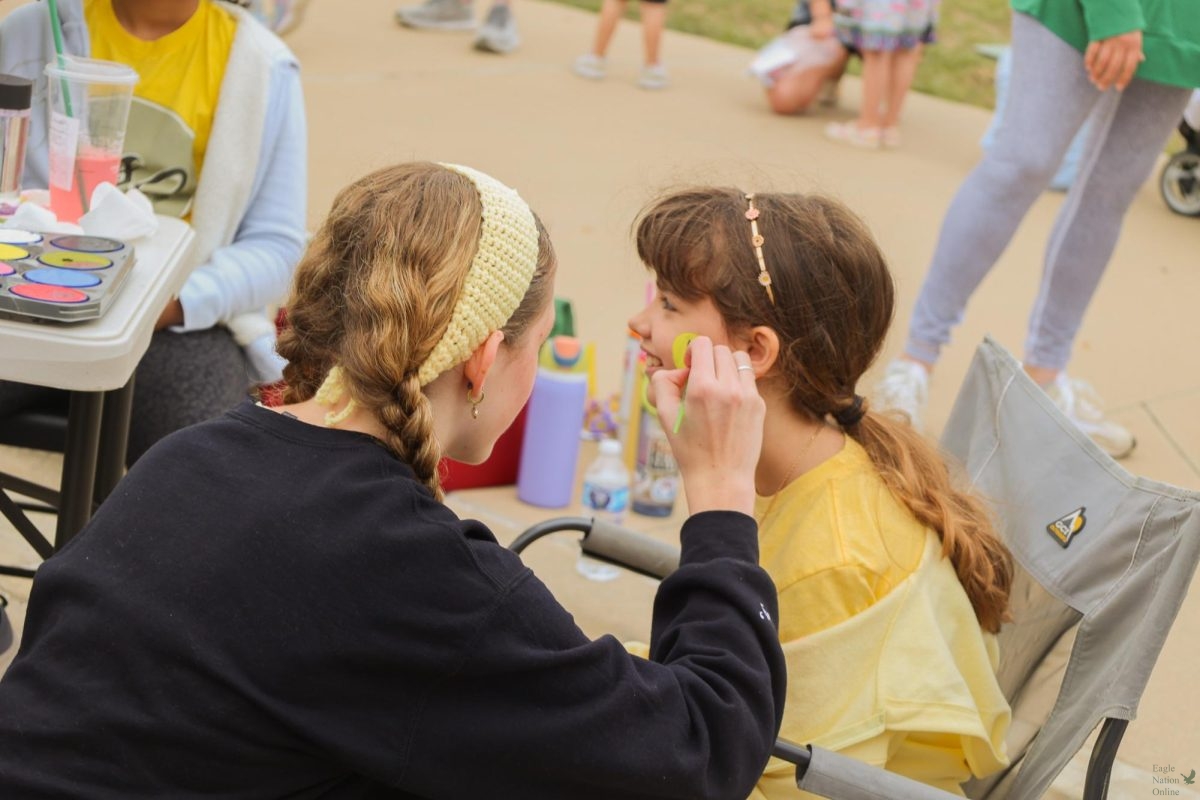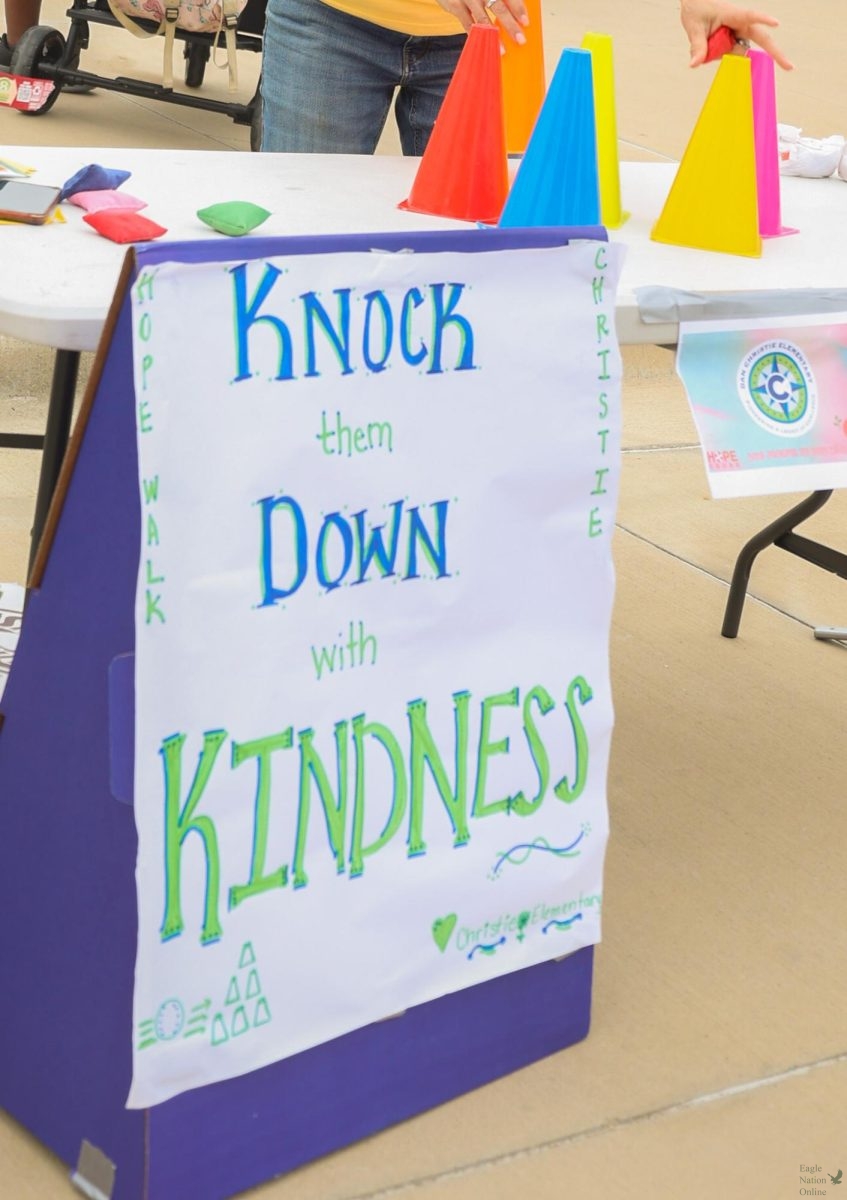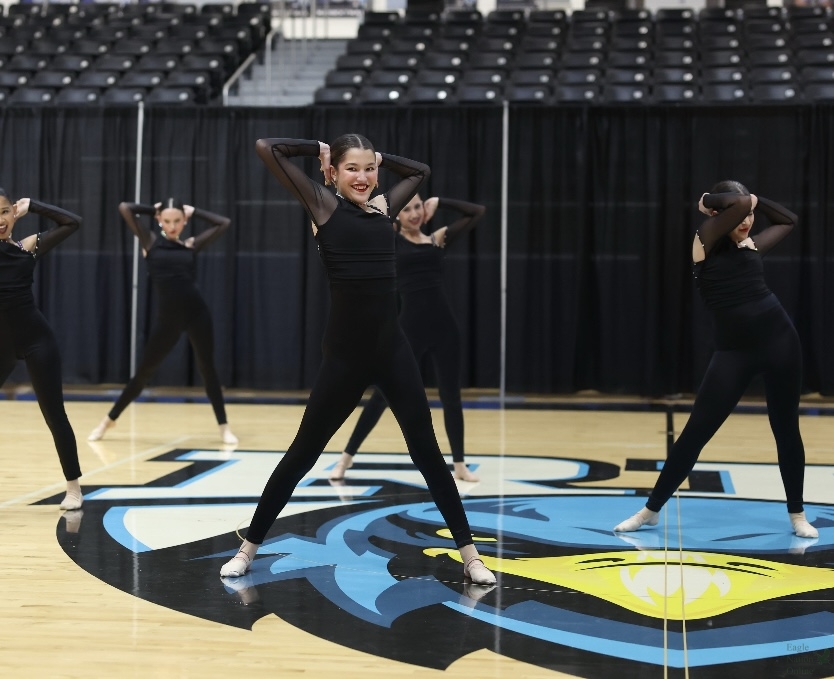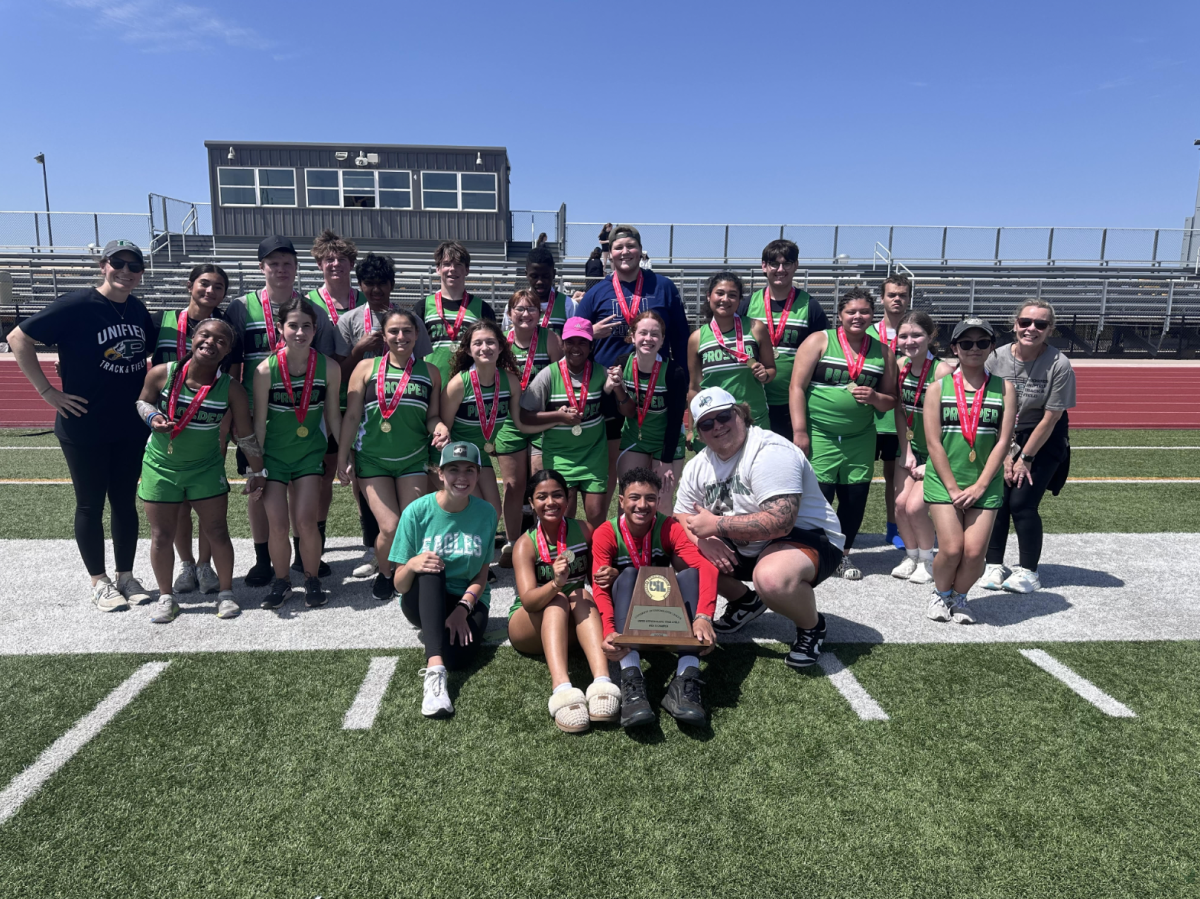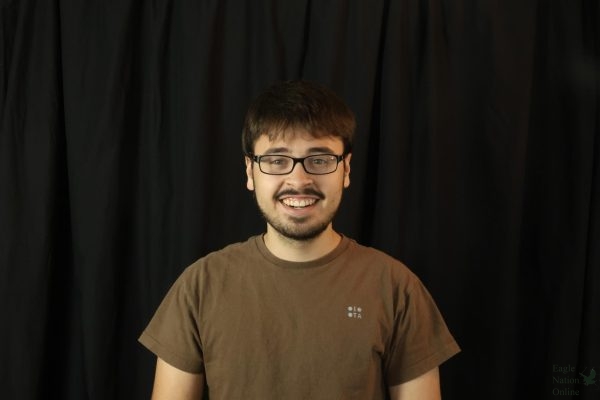His stomach ties up in knots as he waits for his turn to perform.
“Edwin Varghese,” The announcer calls.
As he walks onto the stage, junior Edwin Varghese can see the audience clapping, but he can’t hear the thunderous applause. The only thing he can hear is his booming heartbeat. However, when he bows to the onlookers, everything goes silent.
He mounts his violin on his shoulder, places his bow in position and takes a deep breath. His surroundings fade away, leaving only him and his instrument in his consciousness.
“I’m not just trying to make it into some orchestra,” Varghese thinks to himself. “I’m trying to be the best.”
Finally, he begins to play.
Varghese plays violin for the Prosper Orchestra. In addition to being in the school orchestra, he is a member of an orchestra in the Greater Dallas Youth Orchestra program. Varghese also participates in the United Sound program, which allows orchestra students to teach students with disabilities how to play an instrument. In October, Varghese was the only member of the Prosper Orchestra to make it to the final audition of the All-Region process, which allows orchestra students to perform with some of the best student musicians in the state.
Varghese first started playing violin in fourth grade.
“I started playing the violin honestly because my parents forced me into a program, but I also wanted to try out a new extracurricular while I was in elementary school just to see how I would do,” Varghese said. “It was called the Suzuki program, and it’s a violin program where teachers teach their students based on what’s called the Suzuki method, which was invented by a man named Shinichi Suzuki. Before him, playing the violin was only for the very rich and wealthy people, but, because of the Suzuki method, he made it so that even people who weren’t as wealthy could still learn to play at a high level.”
Varghese said his parents were the ones who motivated him the most to practice when he first started playing.
“There’s a special book called Essential Elements where I would have to play a certain melody, and my mom would press the laptop and play the accompaniment to the melody,” Varghese said. “And, I would repeat this one line which took 30 seconds about 20 times, and my mom would have to sit there and press the play button 20 times. So, my parents really helped me out in just literally like all the small things they would do. They don’t push me as much recently because as I’ve gotten older, I’m much more self-driven.”
Varghese’s competitive nature and commitment to self-growth drive him to continue playing the violin.
“I want to try to do the best I can and just show up proving to myself that I can do better,” Varghese said. “It makes me feel good about practicing, and I know that the more I practice, the better I’ll get. And, it’s not just about competitions. It’s also for my own self-growth. If I compare a piece I played a month ago to a piece I play now, I can feel my improvement as I progress through the month, and it makes me feel good about getting better.”
Varghese practices playing his violin for hours every day.
“There are some people who are very fundamentalist and strict about practicing, and their first hour is scales,” Varghese said. “Their second hour is Bach chorales. Their third hour is concertos. But, for me, I sort of follow that in the sense that I warm up and play my scales and review my basics for the first 30-ish minutes. After that, I sort of just practice my concertos and my Region music, whether it be two hours or three hours every day.”
In Prosper Orchestra concerts, Varghese commonly takes on the role of section leader.
“Being in this leadership position makes me have to understand the music much more in-depth, and I have to understand every other person’s part,” Varghese said. “I also have to show my section what style we’re going to play in. I can make a tone very short or very long or sharp or soft. So, where I put my bow on my violin or what sound I decide to make is what my section has to follow. If I choose to make the wrong sound in the wrong piece, then it’s my fault. I have to show my section what the correct sound is for each piece.”
However, Varghese said he hasn’t always been as good at leading his section.
“I wasn’t always such a good leader, especially freshman year,” Varghese said. “I didn’t know how to cue my section into playing, and I didn’t know how to move my body. I was very uncomfortable with moving, but, as the years have gone on, I’m more comfortable with moving. Now, it’s second nature for me to breathe and show my section that I’m about to play.”
Orchestra director Monika Bartley said Varghese has also grown socially since freshman year.
“Edwin never used to talk much,” Bartley said. “This is the first year I’ve seen him just open up, at least with me. I’ve seen him relax a little bit around his friends and his peers within the classroom setting. I know he’s probably like that like when he’s not around me, but just seeing it in the classroom has been really nice. He’s been coming up and talking with me more so, I’ve just seen him be more open, a little bit more relaxed and more confident in his playing.”
According to fellow violinist senior Coleman Meier, Varghese is a source of positivity in the orchestra classroom.
“When you first meet him, he comes off really introverted, but he’s one of those kids who, once you get to know him, he won’t stop talking,” Meier said. “We’ll be sitting in class rehearsing, and you can look across the room and see Edwin making jokes with his cello friends on the other side of the room. He has a personality that’s always positive, and he helps to lighten the atmosphere, at least for all the violins.”
Although Varghese did make it to the final round of the All-Region process, he did not make it past this audition to be a member of the All-State Orchestra.
“Overall, I feel proud of myself and happy because I was able to make the top region orchestra as well as audition for the state orchestra,” Varghese said. “But, I did not improve as much as I personally would like, so I know that I need to work harder for next year.”
In addition to playing in the Prosper orchestra, Varghese is a member of the Sinfonietta orchestra in the Greater Dallas Youth Orchestra program.
“We meet every Sunday for about two hours, and we just play fun orchestral pieces,” Varghese said. “It’s not the strictest orchestra, but it is still very demanding.”
United Sound allows orchestra students like Varghese to teach students with disabilities how to play an orchestral instrument.
“United Sound benefits our orchestra in a way that they can use a skill set they know to give back to the school community,” Bartley said. “So, it works on leadership skills and communication skills because, with our United Sound students, the same type of communication doesn’t always work, and you might have to explain it in a different way. It really makes our students think outside the box.”
Next year, Varghese aims to make it to the All-State Orchestra and progress to a higher orchestra in the Greater Dallas Youth Orchestra program.
“My main way of achieving this is probably going to be just practicing a lot more and allocating more time to listening to the music, especially because I know that you can learn stylistic choices from just listening,” Varghese said. “For GDYO, I want to do a more difficult solo. Most of the solos I’ve been doing are on the easier side because I’ve been doing multiple other things with them. I want to do a more professional concerto, a more well-known concerto.”
Varghese acquired important life skills from his time playing the violin.
“So, doing all these programs really instilled this sort of dedication and willpower in me,” Varghese said. “There’s a famous saying from musicians where being early is being on time. So, musicians are always very dedicated, and they’re very committed. Being in something like the Greater Dallas Youth Orchestra, United Sound and the All-Region process has taught me how to teach students as well as how to show commitment to what I’m passionate about.”




